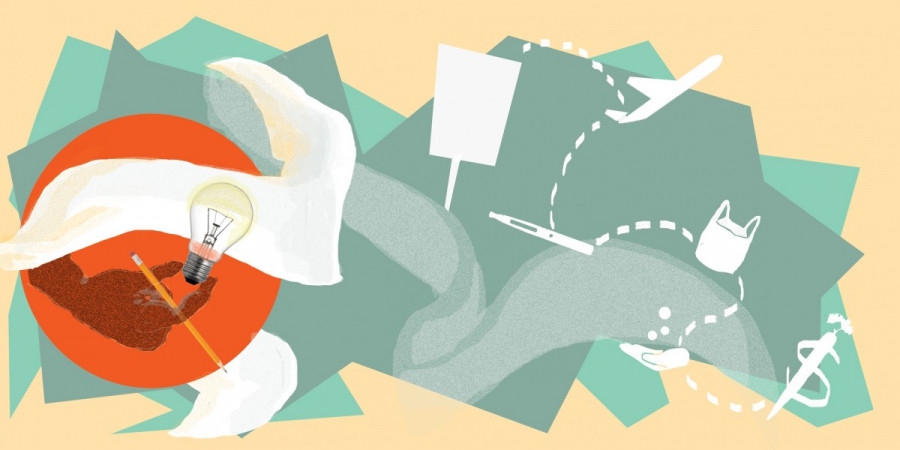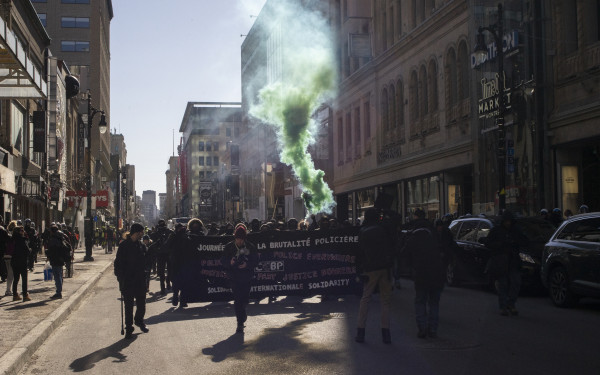Six Things to Expect From the New Year
A Montreal Forecast for 2016
From more anti-austerity protests to a rise in food prices, here is a list of certain things to expect in 2016 in Montreal.
1. More Protests
The year 2016 kicks off with another series of protests organized by various labour unions and student associations. The Fédération autonome de l’enseignement has already organized its first protest of the year for this upcoming Saturday, Jan. 16. It calls for the government to reinvest in the public school system, protesting austerity measures that have been put in place.
In the past few months, the anti-austerity movement has been gaining momentum and if the trend suggests anything, it’s not going to be put to rest any time soon.
Expect to see students and workers taking to the streets and making more noise as they fight for their beliefs.
2. Police Brutality
In the last month of 2015, the Concordia community experienced several real-life examples of police brutality.
Concordia professor David Waddington said police attacked him on his way home from work. He told The Link in a previous interview that he found himself trapped in the nucleus of a protest and was hit by police with a nightstick, pushed to the ground, and kicked several times.
Concordia student and activist Katie Nelson was assaulted by undercover police during a protest and hospitalized because of the injuries inflicted on her, she told The Link.
Montreal has been cultivating a protest culture over the last few years and the demonstrations have become increasingly violent—in both police and protester factions. In several interviews, the Montreal police have stated that they use force only if the progression of street protests threatens the public. However, civilians fear the police more with every unwarranted attack on peaceful protesters, and the tension between police and demonstrators is building with every confrontation.
3. Meet Your New Neighbour, a Syrian Refugee
Just over 2,000 refugees have already landed in Montreal, and more are on the way. The Liberal government promised to welcome a total of 25,000 Syrian refugees into the country by the end of February, according to their website.
Since November, 7,671 refugees have arrived on Canadian soil, here and in Toronto. The new arrivals will diversify the city even more, possibly creating a new Syrian neighbourhood—a place where the newcomers will share their culture with Montrealers, as we’ve seen with Little Italy and Chinatown. Nevertheless, a fundamental part of accepting refugees is integrating them more, and welcoming them as your neighbour.
In the fall 2016, you or one of your family members might have a new classmate who comes from the Al Salam in Reyhanli, Turkey—a school created in 2012 by a Syrian-Canadian diaspora living in Montreal. Concordia University has also announced that they will be pledging to sponsor six Syrian refugee students so far. Be open-minded to meet and welcome these new Montrealers.
4. The Cold
We didn’t have a white Christmas, but skiers and snowboarders were praying to the snow gods for some fresh powder, and their prayers were answered. Did we all really believe the temperature wouldn’t eventually drop to an abominable freezing cold?
While we’re all cozying up and drinking spiked coffee on our way to class, let’s take time to think about how the homeless are surviving. In recent years, the city has been thinking up new ways to keep them off the street—but not by giving them viable options to find a home. Instead, urban designers are turning the city into an obstacle course by redesigning metro stations and other public spaces so the homeless won’t have anywhere to settle down for the night. That’s hopefully about to change.
In December, Mayor Coderre announced that within the next few months, the city will create a new department at City Hall whose mandate will be to manage services for the homeless. The Montreal Movement to End Homelessness is planning to help 2,000 people out of the cold and is also working to procure affordable and subsidized housing for them. In March last year, volunteers of the organization counted 3,016 homeless people on the streets in Montreal.
5. The Rise of Food Prices
Foodies and students looking to save a buck will be frustrated to know that a University of Guelph study suggests an increase in food prices this year—an approximate two to four per cent on average—in every department in your grocery store.
The cost of meat, vegetables, fruits and nuts increased more than anticipated in 2015, and the trend will continue in 2016, in large part due to the weak Canadian dollar. Eighty-one per cent of produce is imported from outside of Canada and food prices are directly correlated to the Canadian economy and lacking loonie. According to the same report, the average household could spend up to $345 more on food.
6. Voulez-Vous un Sac?
Montreal will be the first metropolis in Canada to stop using plastic bags in grocery stores by 2018 if the city follows through with its plan.
Since 2007, Quebec has reduced plastic bag use by half—from 2.2 billion to 1 billion single-use plastic bags since the $0.05 charge fee was instituted, according to Recyc-Québec. Starting this year, Quebec is moving toward an even greener initiative to ban all plastic bags. So for the next couple of years, don’t be surprised if you end up carrying your groceries home in your arms because the local store has phased out the use of plastic bags.
With the recent COP21 conference and other green initiatives raising awareness, citizens are acknowledging the environmental impact of plastic and toxic waste on the planet and our health. Plastic bags are a source of pollution that don’t decompose in nature and litters parks, rivers, beaches and oceans.
If you’re not already using re-usable bags for your groceries, now is the time to start, because soon you won’t have a choice.



1_600_375_90_s_c1.jpg)
_600_375_90_s_c1.jpg)
